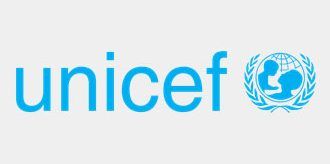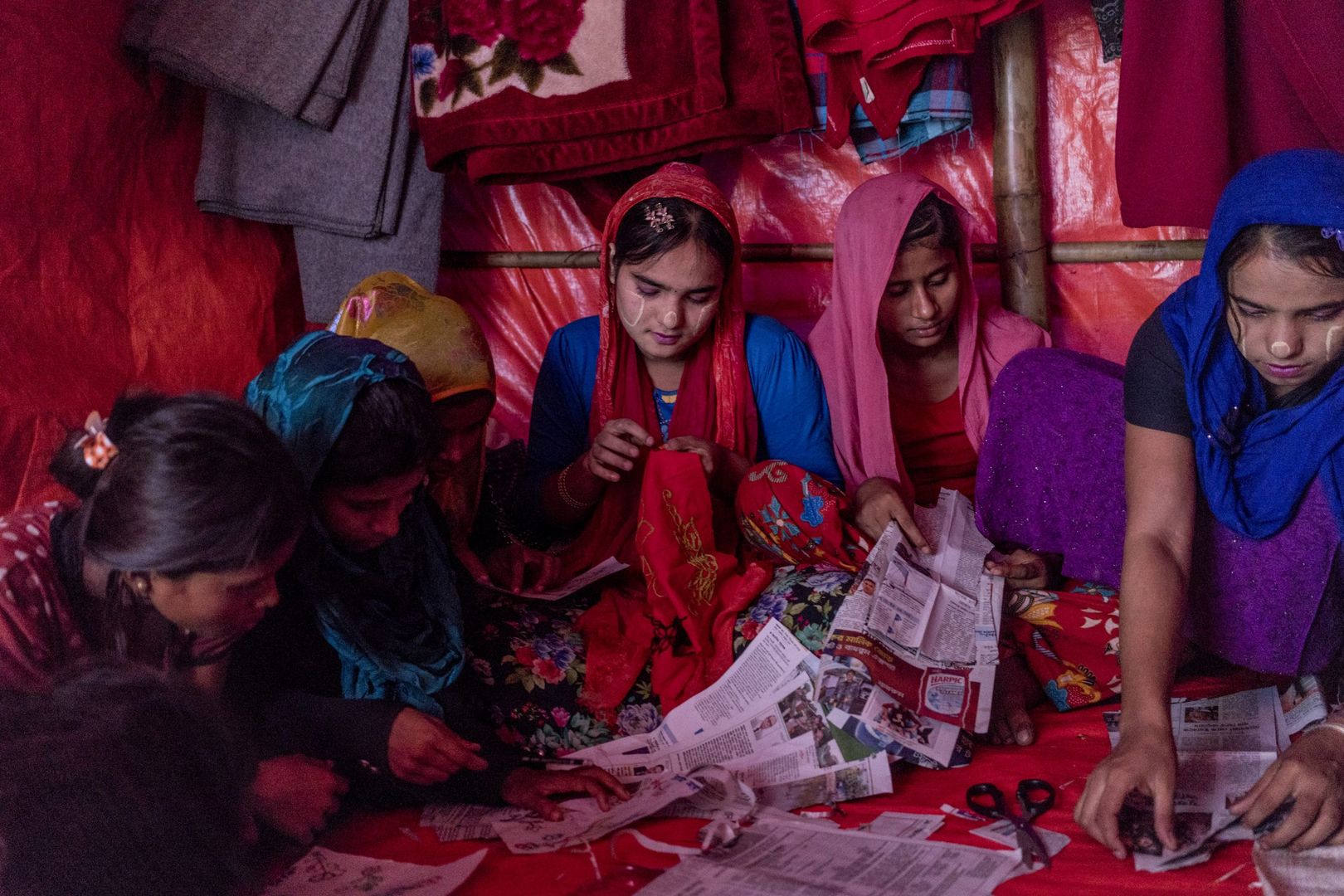The Issue
The Rohingya community of Rakhine state in Myanmar fled the genocide in 2017 and took shelter in Cox’s Bazar, Bangladesh. Five years later (2022) the Rohingyas are still living in uncertainty and in a stateless situation. Refugee camps where they currently reside are extremely congested and ensuring safety and security especially for women and girls is a big challenge.
Expanding nature of discriminatory negative harmful practices, pre-existing gendered risks, norms and violence are exacerbating particularly for children, women, and girls. They continue to be at disproportionate risk of all forms of GBV including intimate partner violence, forced/child marriage, and exploitation. In both Rohingya refugee camps and in the host communities, their rights are often neglected, and voices not heard.

The Project
With the vision to create gender balance in the community, to reduce the stigma and to make the journey of the survivors an easy one, the project has arranged provision of case management services, psychosocial services (PSS) and multi-sectoral referral throughout various interventions. This also includes males, adolescent boys, and those at risk of GBV. Women and girls have been introduced to life and structured skills building sessions for their empowerment.
Toolkits such as Enhancing Girls Agency and Gender Equality (ENGAGE) toolkit and Engaging Men through Accountable Practice (EMAP) has been introduced to engage men, boys, caregivers.
To transform social norms, behavior, and positive practices Community-Based Protection Groups (CBPG) have been created. The groups are active to improve the protection of women and children from violence and their well-being.
Furthermore, the project incorporates religious and local leaders in the community to prevent GBV and facilitates change by engaging them through different sessions.
The project focuses on three key approaches:
- Target duty bearers accountable for system strengthening to combat GBV.
- Enhancing the organizational and technical capacity of selected local Partner organizations
- Strengthen the capacity of other actors to integrate GBV mainstreaming
The Change
The project intervention has made sure that GBV survivors and those at risk can receive appropriate support through survivor centered approach. Adolescent boys and girls are also supported to gain transferable knowledge and skills to address negative social norms, harmful practices and to protect themselves from all forms of violence including abuse and exploitation.
Throughout the different initiatives, awareness, sensitivity, capacity, and engagement on GBV prevention has increased in the community. Improved institutional and technical capacity of partner organization has strengthened effective implementation of GBV programme, gender-responsive humanitarian action and effective localization.
“I cannot explain how profoundly happy I am to learn the sewing, tie-dye, and block-batik. I never thought that I could ever get a job as a skilled instructor, and it wouldn’t have been possible If DCA wouldn’t offer me the opportunity. Now, I can look after my mother and sisters by myself. Thank you, DCA for helping me out in the worst time of my life and supporting me to become a self-independent girl.”– Fatima (17)
A young Rohingya girl’s road to self independence
In 2017, Fatima (17) and her family fled from Myanmar during the Rohingya influx. Since then, she along with her mother and two sisters living in a refugee camp in Cox’s Bazar, Bangladesh. There is no income generating member in her family and since they fled, they had to completely depend upon relief items.
Fatima always wanted to take care of her family by earning someday. One day she learnt about Women and Girls Safe Space (WGSS) by DCA through awareness sessions and household visits. She was also informed that WGSS offers different life skill activities, creative works, and tailoring. She was interested to learn sewing, thus she decided to participate in three months tailoring session and started learning sewing. Besides sewing, she also learned needlework, hand paintwork, tie-dye, block-batik work, etc. She even received a sewing machine from the CIC (Camp in Charge) from her camp, and then she started sewing her clothes all by herself. In the beginning, she used to sew clothes only for her family, but afterward, she started sewing clothes considering it as a profession. It wasn’t late, she started earning and contributing financially towards her family.
To her surprise, after a few days, she received a job proposal as a sewing instructor at a WGSS of NGO BRAC. Her dream to be self-dependant was finally true. While sharing her happiness, she expressed, “I cannot explain how profoundly happy I am to learn the sewing, tie-dye, and block-batik. I never thought that I could ever get a job as a skilled instructor, and it wouldn’t have been possible If DCA wouldn’t offer me the opportunity. Now, I can look after my mother and sisters by myself. Thank you, DCA for helping me out in the worst time of my life and supporting me to become a self-independent girl.”
Fatima’s family members are also very happy with her progress in life. Her mother shares that, even in the distress they are living in, Fatima’s achievement makes them proud.
The Results
Addressing gender-based violence project has been ongoing from 2018. Since then, total 73,269 women and girls and 42,930 men have been reached out so far. The project has taken a comprehensive approach, it included men, women, boys, girls, religious leaders, and local leaders of the community to decrease gender gap and increase gender balance. According to the client satisfaction survey conducted in 2020, 92% of the survivors who received GBV Case Management and Psychosocial Services marked the services to be satisfactory.
About The Project
Project Title: Providing Rights-Based and Gender-Responsive Services to address Gender-Based Violence in Rohingya camps and host communities
Period: January 2018 to April 2023
Amount: 7,779,118 USD
Number of people reached:
Total: 1,16,258
Female: 73,269
Male: 42,930
Donor: UNICEF


